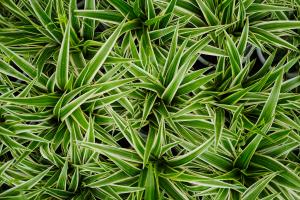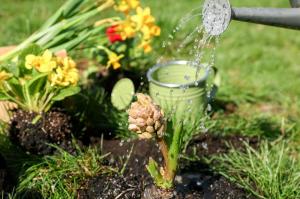Can Contaminated Water Make Plants Unsafe to Eat?
Water is essential for the growth of plants. Without sufficient water, plants cannot carry out photosynthesis, absorb nutrients from the soil, or maintain their structural integrity. However, water can also pose a risk to plant health if it is contaminated with harmful substances such as heavy metals, pesticides, or pathogens. In this article, we will explore the potential effects of contaminated water on the safety of plants for human consumption.
The Dangers of Contaminated Water
When plants absorb contaminated water, they can accumulate harmful substances in their tissues. This can not only affect the quality and flavor of the food but can also pose a risk to human health. For example, ingestion of heavy metals such as lead, cadmium, and mercury can cause neurological damage, kidney damage, and other serious health problems. Similarly, exposure to pesticides and pathogens can lead to acute or chronic poisoning or infections.
Sources of Contamination
Contamination of water can occur from a variety of sources. Agricultural runoff containing fertilizers and pesticides can enter water bodies and contaminate groundwater that is used for irrigation. Industrial pollutants can also leach into rivers or groundwater, contaminating water supplies. Finally, natural phenomena such as volcanic eruptions, algae blooms, and bacterial outbreaks can result in the release of toxins into water sources.
Effects on Plant Health
Contaminated water can have various effects on plant health, depending on the type and concentration of the contaminant, the duration of exposure, and the stage of plant development. Some harmful substances can stunt growth, reduce yield, or affect photosynthesis, while others can cause discoloration, deformities, or other visible symptoms. In extreme cases, contaminated water can cause the death of the plant or reduce its quality to the point where it is no longer suitable for human consumption.
Prevention and Treatment
The best way to prevent contamination of water is to adopt good agricultural and industrial practices that reduce the release of pollutants into the environment. This includes proper use and disposal of chemicals, management of wastewater, and maintenance of proper sanitation measures. In cases where contamination has already occurred, treatment methods such as filtration, reverse osmosis, and chemical treatment can be used to remove or reduce harmful substances in water.
Conclusion
In conclusion, contaminated water can pose a significant risk to the safety of plants for human consumption. The accumulation of harmful substances in plant tissues not only affects the quality and taste but can also cause serious health problems. Therefore, it is important to prevent water contamination from occurring through responsible practices and to treat contaminated water when necessary. By doing so, we can ensure the safety and quality of our food supply.

 how many times do yo...
how many times do yo... how many planted tre...
how many planted tre... how many pine trees ...
how many pine trees ... how many pecan trees...
how many pecan trees... how many plants comp...
how many plants comp... how many plants can ...
how many plants can ... how many plants and ...
how many plants and ... how many pepper plan...
how many pepper plan...































